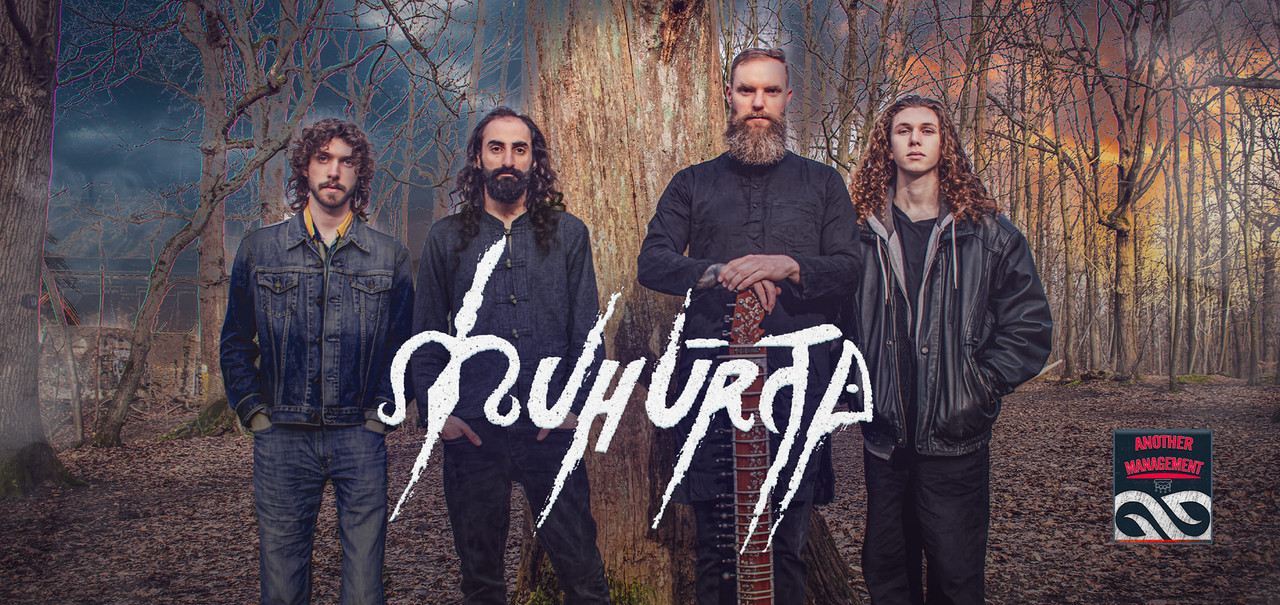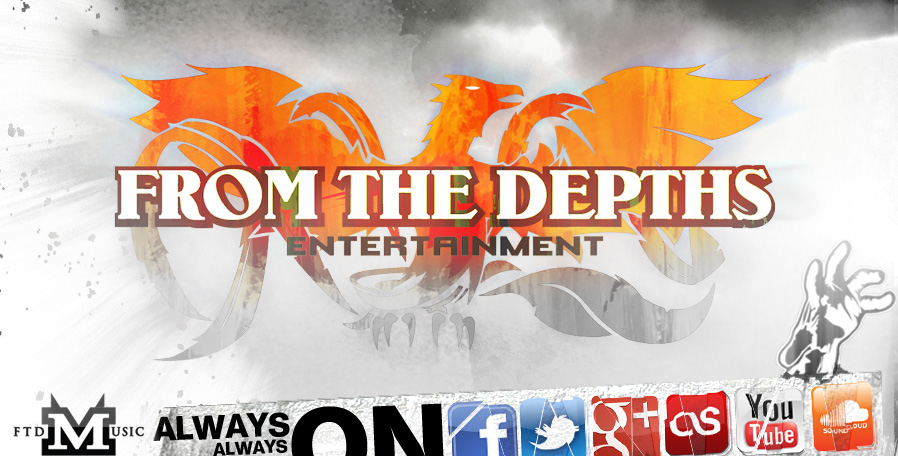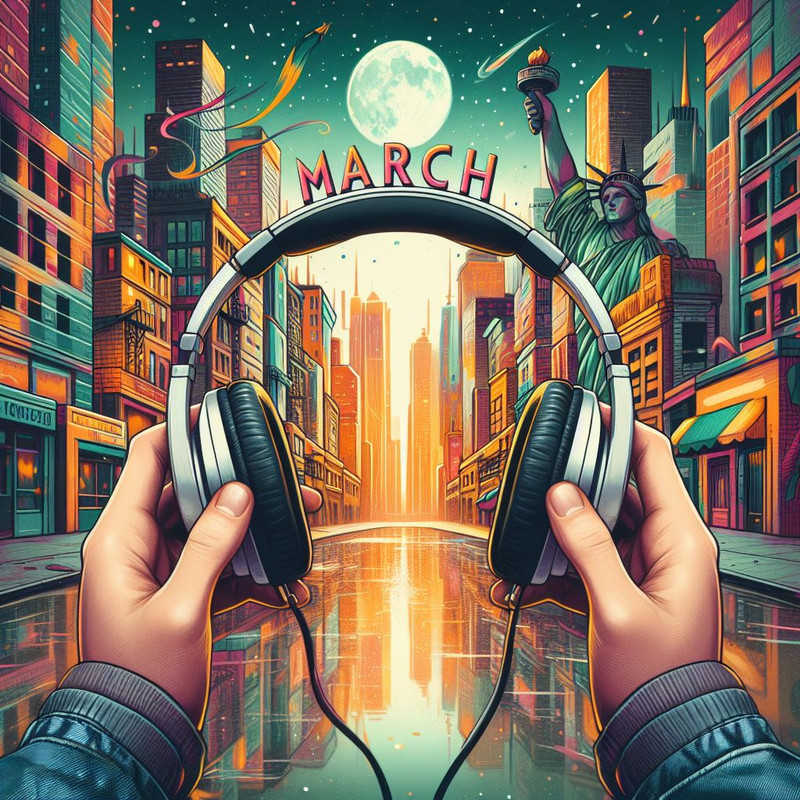


Muhūrta is a band which combines distorted guitar, beautiful clean balad and harmonious sitar phrases in an Indian traditional way.
-Interview- (4/19/24)
1. How did you get started with music and how did you develop your sound? How did the name "Muhūrta" come about and is there any meaning to it?
Matthieu (sitarist): I started music by playing guitar in a band I formed as a teenager, playing metal, blues and grunge. Back then I had a lot of little projects that didn’t go far. At 30 I started learning how to play the sitar, an instrument I discovered years earlier thanks to a live record of Ravi Shankar. I found my teacher, Michel Guay, in Paris. He taught at the university of music of Benares. It was such a revelation to me. He is still my teacher to this day and he continues teaching me ragas and all the theory of Indian classical music.
Pierre (guitars/vocals): I’ve been playing guitar since I was 13. Back then I had just started discovering metal music. Then I played in a few different bands when I was 20, there was a thrash band, a black metalband, and a stoner one. At 23, I decided to study the past of India so started studying archeology in university, specializing in India. The following year,I decided to travel all around India to visit old temples. On my way there was a city called Benares. On my first day there, I discovered Sitar and Tabla, and they completely blew my mind. I decided to stay in this city and I gave up visiting old temples to study sitar instead, for the rest of my stay. As my trip was nearing its end, I decided to buy a sitar and to bring it back home, near Paris. After 3 months, I wanted to improve my skills on the sitar. At the time, my father was reading a book about Kabir, a great poet from Benares in medieval times. That is how I discovered my new teacher Michel Guay, the same one as Matthieu’s, and I’ve never stopped practicing with him since.
One day we met each other at Michel’s home and both recognized each other as metalheads because of the metal t-shirts we wore. On the 15th April 2019 we were talking during one of our teacher Michel’s shows, and we thought : “what if we created a metal band that used a sitar”. That was the very beginning of Muhūrta. We took our time before settling on the name Muhūrta. At first,we wanted to be called “in search of light”, translated in Sanskrit. This made sense for us because Matthieu worked (and still works) in lighting and Pierre used to be an archaeologist researcher. But the name was too long, and we didn’t want a name with multiple words. While searching through old sacred Hindu texts, a word came to us : Muhūrta.
It has two meanings in Sanskrit: it means the moment, the present time, but it also means dawn. In the old tradition of India, dawn is the best time of day for meditation or any work. This symbolizes the victory of light over darkness. So Muhūrta meant a lot to us, because we found that “in search of light” meaning we wanted before in the word Muhūrta. We also like to think of music as a tool for knowing ourselves. We think we can feel a transitory inner state where past and future do not exist, only the true present moment. In this state the listener can dive deeply into music and put away all his personal problems.
And to finish about the word Muhūrta, we thought the word sounded beautiful, we liked that it was short, with only 3 syllables. The number 3 is very important in our music. In Indian music, they like to repeat the same melodic sentence 3 times, before finishing on improvisation for instance. But if we start talking about how Indian music works, this interview will go on forever! We hope you now understand why we chose the name Muhūrta.
2. What do you want people to take away from your music?
To us, Indian classical music is very powerful, intense and so emotional. We would like people to know more about this music and how it works. Indian classical music is getting rarer and rarer and less listened to, even in India where Bollywood pop music has taken over classical music. One of the band’s objectives is to open up the metal world to new ideas, because we know how passionate metalheads are about music. That is why we’ve added a few classical tracks to our first album, in between the modern metal sitar songs. We hope that our project will make people interested in listening to more traditional Indian music.
3. How would you describe your sound to the average listener?
Our sound is a fusion between two different genres : Metal and classical Indian music. We use all the concepts behind this genre and mix it with metal, adding a lot of harmony to every heavy riff. It is at the crossroad between two cultures.
4. Who are three bands you’d like to tour with?
Sepultura, Gojira and Dolpo.
5. How has Covid affected what you do?
During covid, we couldn't work properly with the band, sometimes we couldn’t see each other for months… All of our work was slowed down as a result. We believe that, without those 2 years of hell, our album would have been released 2 years ago…
Matthieu : COVID made me think about how music can affect our life in a positive way. Returning into arts and hobbies. Those who couldn't practice, started, and those who already did, like us, had the opportunity to practice more. I work as engineer in a big company, it can be really difficult to play every day, I used the COVID period to practice more and develop techniques I still use today with the band.
6. What’s your take on the current state of Metalcore?
Metal today sounds very interesting. It is a very rich and powerful music. In metal there are many pure genres like death, thrash or black metal, and now there are also more hybrid kind of metal and other mixed genre like we do. This is why we think that this music is a very complete and rich one.
7. What’s the current music scene like there in France?
In France, everything is Rap, R’n’B and Frenchpop music-centered. Even if we have a very good metal scene, incredible metalheads, one of the biggest metal festivals in the world (Hellfest), it is very difficult to be recognized as a real music genre. Extreme music is not well perceived and not supported by mainstream media. There are a lot of incredible bands within our small scene.
8. What’s your take on the royalties that streaming services pay out to artists?
Listening to Music seems free today, the hard work of artists is not well rewarded. There are many bad aspects for the artist but we think there are also some good ones. Music is easier to share. We live in an era where new genres of music are popping up, and we believe that this new and very easy way to access music has played a role in that. Artists can find a lot of new inspirations from all around the world, it’s crazy. But listeners need to realize how hard it can be to produce music, and maybe go back in time a bit to the when we used to buy real CDs to support them. One solution is to keep playing shows and making people want to go to a show.
9. What’s next for Muhūrta?
We’re really looking forward to playing live and promoting our music. We’re currently working on a CD release and on new songs. We’re also thinking about a second album.
10. Any shoutouts?
Thank you to From The Depths entertainment for having us in your roster. We are very happy to be a part of your label and it was a pleasure to write this interview!

